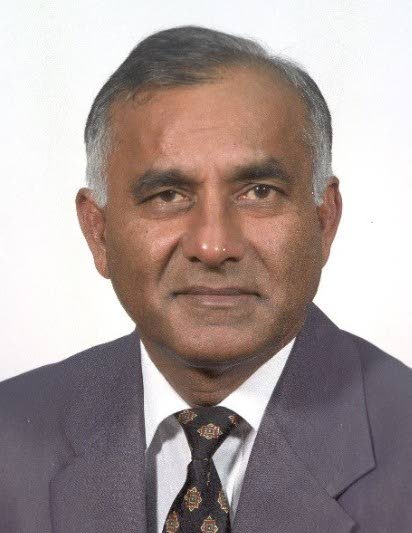Voting patterns and their motivation

TREVOR SUDAMA
IN HER column in the September 23 Newsday, Debbie Jacob referred to a study by author Drew Western on voting behaviour in the US. She stated, “Westen determined that only about 20 per cent of eligible voters determine an election. These independent voters analyse the facts. The other 80 per cent are almost evenly divided and committed to the Democratic or Republican Party. Little or nothing that either candidate says or does will change their minds.”
The statement illustrates the general inflexibility of voting patterns and raises the question of the motivation behind this inflexibility.
My own assessment as a former academic student of politics and as a participant in elections in TT is that such general inflexibility is an emotive response to certain latent stimuli, whether based on race, ethnicity, religious or cultural affinity, class, ideology, region, or a combination of these elements. They are enduring and intergenerational.
These motivations for voting are universal and found in long-established or emerging democracies. It is a small minority, in many cases even less than 20 per cent, who are amenable to persuasion through a reasoned discussion of facts and experiences and who do actually vote. They decide electoral change.
In the US, they can be found in the six or seven swing states. In TT, they reside in the seven or eight marginal constituencies.
Some examples worldwide would illustrate the motivations for voting which persist over time.
In the US today, Afro-Americans generally vote for the Democratic Party in the belief that it would be more sympathetic to and supportive of their racial concerns. On the other hand, tens of millions of Americans of European descent who support the policies and agenda of the Republican Party headed by ex-president Donald Trump are basically motivated by the conviction that the party will preserve and promote the superior status of white Americans against the socio-economic encroachment and political threat of the growing numbers of non-white Americans in the country.
The immigration issue is basically a question of race.
In Europe, the growing support for extremist right-wing parties has been founded largely on their rabid anti-immigrant stance of restricting non-white people of African, Middle Eastern or Asian origins from entering their countries.
Culture, language and, to some extent, geography have over a century determined French Canadian perspectives and voting patterns as against those Canadians of other origins.
In the US, it was historically an unwritten code that a person of Catholic religious persuasion should not attain the presidency of the US, until John F Kennedy was voted into office in 1960. Members of the southern Pentecostal churches, among others, have been continuously swayed by their religious beliefs in exercising their franchise.
In the UK, class has, from time immemorial, been a constant determinant of voting behaviour. Only recently in the 2019 general election, it was reported that constituencies in the industrial north that had voted consistently for the Labour Party for over a century only switched their support temporarily to the Conservative Party on the emotive persuasion that Brexit would restore their sovereignty and their control over their destiny as a nation.
In Scotland, geographical allegiance has assumed paramount importance with the emergence of the Scottish National Party, which enjoyed majority support over decades.
In many African countries, tribal (ethnic) loyalty and geography have consistently dictated voting behaviour. In India and Pakistan, religion, caste, class and region have been the major determinants of voting outcomes.
In TT, racial allegiance has to a very large degree over the years determined how people vote. It is a phenomenon which has been consistently disparaged by aspiring political leaders of minor parties and by some self-righteous political commentators and civil society captains espousing rational behaviour and non-racial protestations.
However, Caribbean academic Ralph Premdas has noted that, “Identity emerges from collective group consciousness that imparts a sense of belonging derived from membership in a community founded putatively by common descent and culture. As a subjective phenomenon, it imparts to the individual a sense of belonging and to the community a sense of solidarity which is a vital need of human existence” (Identity, Ethnicity and Culture in the Caribbean, p3).
Racial identity based on commonality of perspective, experiences, kinship ties, group interaction and loyalty, and a sense of community is a normal social phenomenon as evidenced in many societies. There is nothing inherently sinister, conspiratorial, insidious or egregious about such racial identification and cohesion.
If the argument is that political allegiances based on race are generally fixed and immutable and therefore largely immune to persuasion to accommodate what may be regarded as desirable change, then the same can be said of allegiances based on ethnicity, religion, culture, class, ideology and region.
If another argument is that racial divisiveness and polarisation are likely to generate physical confrontation, electioneering violence and communal warfare, these have not been the experience of TT, but have been that of more racially homogenous societies such as Jamaica, Mexico, other Latin American countries, South Africa and other African countries, and some Middle Eastern and Asian countries.
In the special case of British Guiana, the racial and political conflict was generated by external forces and exploited by a ruthless local leader in order to achieve and maintain power.
It is therefore not only counterproductive to excoriate the majority of supporters of both the PNM and the UNC of being motivated by unwavering racial allegiances, but savours of political self-righteousness, moral superiority, a misunderstanding of the human psyche, and a restricted definition of rationality.
As in the US, the general inflexibility of voting patterns will endure. Change is likely to emerge from the behaviour of a minority at the margins. This is the obtrusive political reality.

Comments
"Voting patterns and their motivation"